Games have come a long way since the days of Asteroids and Pong, an even longer way since the days of Cup and Ball and Hitting a Big Ring With a Stick to Keep it Rolling and certainly an immeasurably long way since the days of Do Poo in Hand and Throw Far for Win Best Cave. Now, with seemingly everyone and their mums playing them in some form (sadly Candy Crush Saga, Farm Hero Saga and Decaying Corpse Pile Saga count), video games are said to be bigger than the movie and music industries, and Swedish dudes who make computer Lego get to live in lovely big houses in LA. Some are even played as sports, and tournaments allow players to win huge sums of cash (I very much recommend watching the excellent documentary Free to Play).
Unfortunately, there are still some people out there who think that video games are toys to be played with by children, albeit little scumbags who enjoy shouting eloquent things like ‘fuk you fag i am a better nosc0per than you i am a army sniper with 30000000 confirmed kills retard i shit in your mums mouth’. Though it is a sad truth that this is the case, with too many parents apparently blind to the big ’18’ label stamped across the games they buy for the – to quote Mark Renton of Trainspotting – ‘selfish, fucked up brats [they] spawned to replace [themselves]’, proper gamers like you and me know that games can be so much more.
I’m sure many people of mine and previous generations who have grown up with games have heard something along the lines of ‘stop playing that rubbish, read a book instead’. What is that supposed to mean? A book is a form of entertainment just as is a movie and indeed a game, the difference being that when reading a book or watching a movie you are an observer to the story, whereas in a game you get to take part. A novel can be described as escapism but it can never put you personally into the experience in the same way as playing a video game (though some have tried – the brilliant Mr B. Gone by Clive Barker for example, a book in which a demon magically speaks directly to you, the reader, through the words on the page). It is because of this that gamebooks such as Steve Jackson’s and Ian Livingstone’s Fighting Fantasy series became all the rage in the 1980s. Take a novel, add player choice, dice rolling and plenty of unfortunate, grisly deaths and sleep on a nice big mattress stuffed with wads of cash. It can in fact be argued that games are the very best way to tell a story, as the audience involvement is naturally more powerful.
I have already discussed video game immersion in a previous blog post, so today I want to talk about narrative experiences in games. The titles I have chosen for this top 5 list are all examples which I believe any gamer should be proud to show a disbelieving non-gamer as proof that their hobby is worthwhile, proof that games are just as important as movies and, probably, a bit better. Perhaps they are even proof that games are an art form – a somehow-controversial debate that is, for some reason, still raging on like one of those nosc0per kids who’s just been spawn-killed.
Alternatively, you could just see these as five bangin’ games which you absolutely must play. Your choice.
NUMBER 5
FAHRENHEIT (2005)
Quantic Dream
Platforms: PlayStation 2, Xbox; HD Remastered version on PC, Mac, iOS
In the first scene of Fahrenheit (titled Indigo Prophecy in the US), players assume the role of Lucas Kane who, while sitting on a toilet in a diner, appears to go into a supernatural trance which leads to him putting a knife in a fellow toiletgoer. After trying their best to cover up the evidence and escaping the diner, the player is whisked into the shoes of NYPD officers Carla Valenti and Tyler Miles as they try to find out what happened in that very bathroom (apart from all the poos and wees*).
As well as having the best damn graphics I’d ever seen at the time it was released (although admittedly rather dated now), Fahrenheit‘s approach to storytelling blew me away. The game has genuine player choice that actually affects the story, with multiple dialogue options (now a staple of story-heavy games like Mass Effect), scenes that can only be played if certain conditions have been met and multiple, wildly different endings.
This was the first time I ever felt like I was playing a movie. The action scenes, while denying you control over your character, employ a sort of minigame of rhythmic button pushes to determine success or failure in sequences as diverse as hiding from creatures or playing guitar. This allows the game to retain the cinematic essence of a movie with directed, full motion video, but still makes you feel directly involved in what is happening on screen. Even more impressive (especially at the time of release) are the context-sensitive actions in the main gameplay that allow you to perform feats like opening a door or sitting in a chair with a particular movement of the control stick. It sounds so simple, but it really does create a sort of immersion that I had never experienced before.
Whether or not Fahrenheit holds up completely is debatable, but it must be commended for trying to be something more than just a game and pushing the medium into unexplored territories.
NUMBER 4
SPEC OPS: THE LINE (2012)
Yager Development
Platforms: PlayStation 3, Xbox 360, PC, Mac
Want to feel like an absolute bastard? Play Spec Ops: The Line.
Set in an apocalyptic, sandstorm-ravaged Dubai, Spec Ops puts you in the shoes of Delta Force captain Martin Walker. After everything went to shit, the city was taken over by the disavowed US battalion The Damned 33rd and its unstable commander, the mysterious John Konrad. As Walker, it is up to you and your team to investigate, but a simple reconnaissance mission soon turns into something altogether much darker.
It’s impossible to say any more about the game’s story without stepping into spoiler territory, but Spec Ops‘ real triumph is the way it deals with morality. You’ve probably played a whole host of shooters before and thought to yourself ‘why am I doing this?’ as you’re mindlessly gunning down hordes of enemy soldiers or scrubby noobs. This question is at the very heart of Spec Ops, a game which gives real emotional weight to every bullet you fire. You don’t feel like a hero, you feel like a monster.
You might say that games are supposed to be fun and that a title with mediocre gameplay and a tendency to make you feel awful is not worth the eight or so hours required to complete it. This may be the case, but Spec Ops: The Line is a sobering experience; a narrative behemoth that proves that even one of the stalest genres, the military shooter, can tell relevant, meaningful and, most importantly, incredibly adult stories.
NUMBER 3
SHADOW OF THE COLOSSUS (2005)
Team Ico/SCE Japan Studio
Platforms: PlayStation 2; HD Remastered version on PlayStation 3, PlayStation Now
Want to feel like an even bigger bastard than Walker? Play Shadow of the Colossus.
In a minimalist plot involving a dead girl and the supposed promise of resurrection, protagonist Wander and his horsey friend/vehicle Agro journeys through a hauntingly beautiful landscape to find and kill sixteen majestic giants known as colossi. The heartless part? They’re all docile until you decide to get all up in their shit, clambering up their bodies in search of their weak spot as they desperately try to shake you off and go about their business.
Sixteen times you shove your sword into these enigmatic beings and sixteen times you absorb their essence, getting closer and closer to your reward. But with each kill you lose part of yourself and begin to question what all of this is really for. Why are you slaughtering such peaceful creatures? Whose is the disembodied voice spurring you on in your murderous quest and what do they want? Who are the warriors who appear to be pursuing you?
Being a game essentially comprised solely of boss battles, Shadow of the Colossus presents some really interesting and unique gameplay ideas, but it is the narrative that makes this title worth remembering. It made me realise that in games you’re not always necessarily the good guy, but maybe you’re not the bad guy either. It was proof ten years ago that games could have layers that would make even Shrek cry, whilst also being considered a stunning piece of art thanks to its wonderful design and advanced graphics. If you know someone who is somehow still video game ignorant, there are worse places to lead them than Shadow of the Colossus (such as off a cliff, to a Justin Bieber concert or, god forbid, into Newport).
NUMBER 2
DARK SOULS (2011)
From Software
Platforms: PlayStation 3, Xbox 360, PC
Ok, I’ll admit – I’m one of those people for whom 2011’s notoriously punishing Dark Souls is their favourite game of all time. It is, without a doubt, a masterpiece and a significant one at that, having such a huge impact on the action roleplaying genre that many games today can be said to have been inspired by it, at least in part. There is much to praise about the game, whether it’s the skillful and satisfying combat system, the masterful level design, the rich dark fantasy atmosphere or the excellent boss battles of such famed difficulty that provide an unparalleled sense of achievement when you finally reduce their health bars to zero (mostly; let’s not talk about the Bed of Chaos). All of this comes together to create one of the greatest experiences in gaming, but it is the unique way that Dark Souls approaches narrative that places it firmly on this list.
Supposedly Hidetaka Miyazaki, mastermind behind Dark Souls, its spiritual predeccessor Demon’s Souls and spiritual successor Bloodborne, was a big fan of western fantasy while he was growing up. However, with a limited grasp of the English language, there were parts of the stories he couldn’t understand, so he had to fill in the blanks himself.
This idea of a fragmented story became the core of Dark Souls. The game begins with you, an undead, waking in a cell as a knight throws you the key to the door. You escape the asylum on the back of a great crow, but not before a second encounter with that knight, who tells you of the prophecy of the Land of Ancient Lords and the chosen undead who would save it. As you travel through the dying world of Lordran on a journey to relight the sacred First Flame, much of your quest and the world itself remains a mystery to you. In fact, you can finish the game and still have no idea what the hell it was that you did, or why you did it.
The information is there though, the genius of Dark Souls being that you need to look for it. Details about places and legendary figures are revealed in snippets of item descriptions or through chatting with the game’s cast of characters. Stories are told through architecture and world design, giving clues about the history of Lordran that are there to be interpreted by the player. The placement of every single item you pick up has something to say about who dropped it and why.
When you start to put all of this hidden information together, you realise that Dark Souls has one of the most complex and intriguing settings of any game and one that is still being talked about to this day. The game leaves just enough gaps to give rise to numerous interpretations and theories, all of which could be – and are being – discussed until the cows come home. Add to that the truly tragic and heartbreaking tales of characters like the heroic Artorias and everyone’s favourite ‘gloriously incandescent’ knight Solaire and you have a story that, despite its scale, is immensely personal. It’s perhaps not one for newcomers to the hobby, but Dark Souls is an example of storytelling that simply cannot be replicated in any medium besides games – an incredibly rewarding exploration of what it means to be human.
NUMBER 1
BROTHERS: A TALE OF TWO SONS (2013)
Starbreeze Studios
Platforms: PlayStation 3, PlayStation 4, Xbox 360, Xbox One, PC (controller required), iOS
It was difficult for me to relegate Dark Souls to number two on this list, but the number one spot really needed to go to Brothers: A Tale of Two Sons, a game which, if you’re reading this, you really need to play.
Directed by Swedish film director Josef Fares, Brothers tells the story of two brothers named Naia and Naiee, who must traverse a fairy tale world to find a cure for their dying father. With gorgeous, colourful graphics and a wrenching soundtrack, Brothers is as beautiful a game as they come, but it is its story and sense of character along with its very nature for which I hold it in such high regard. The central gameplay conceit is that each brother is controlled by a separate thumbstick and trigger on the gamepad, meaning that to solve the game’s puzzles your brain has to always be doing two things at the same time. Though you get more used to this control scheme, it is never easy and while it serves to keep you invested in the game’s mechanics, it also draws you closer to the characters.
As Naia and Naiee wander through massively diverse settings across the game’s relatively short run time, you as a player really do feel like you are journeying with them and, amazingly, the controls themselves are integral to that experience. It is these controls and the very act of using your controller that are responsible for the game’s most emotional moments and in this sense it really is a narrative experience only possible in gaming. It’s all quite hard to explain, both to put it into words and at risk of spoilers, but I urge you to pick it up and play it yourself, in a single sitting if possible. Before playing Brothers I never would have thought that a single press of a button could make me cry so much.
At two-and-a-half to three hours, Brothers is the perfect length for a story I will no doubt play again numerous times in the future, much like I revisit my favourite films. It is a game with a clear beginning, middle and end (oh, what an end!), characters you genuinely care about (despite the fact they speak a made-up language), fun, varied gameplay and a story that will move you to tears. Want a game to convince people that sitting in the dark with a controller is as valid a hobby as reading books, watching films or raising emus? Show them Brothers. They can thank you later.
And thus endeth The Word of Tom.
*I am so very sorry.
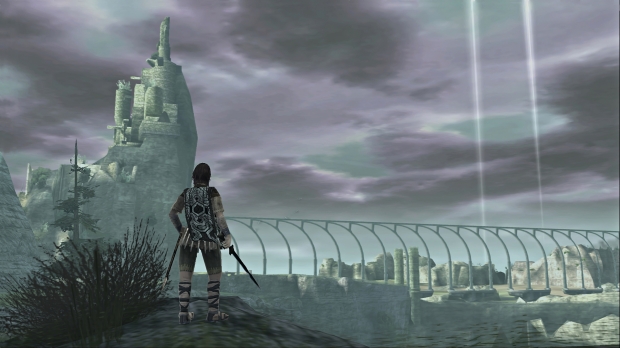
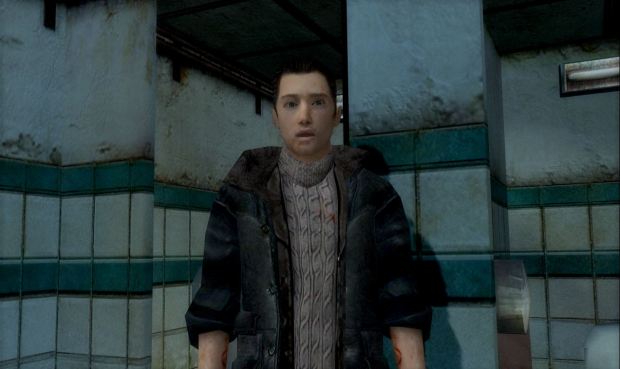
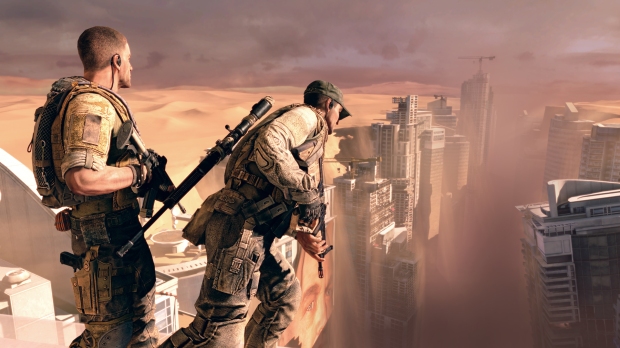
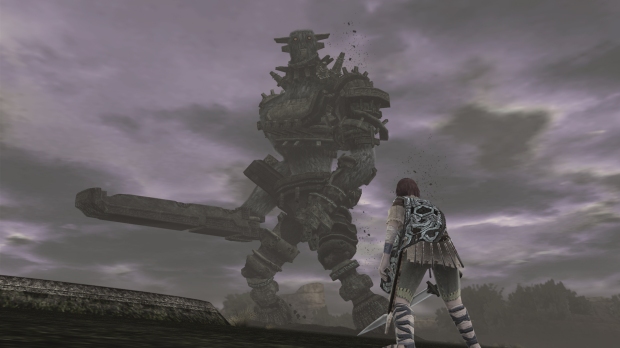
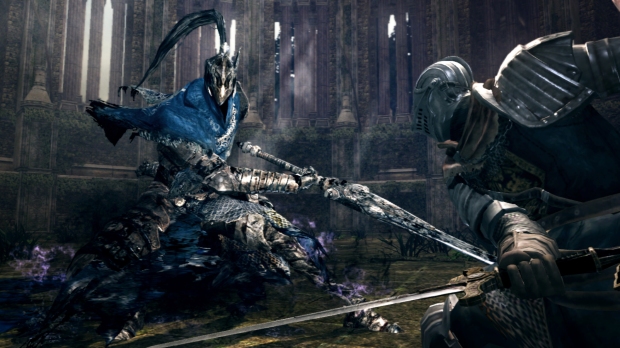
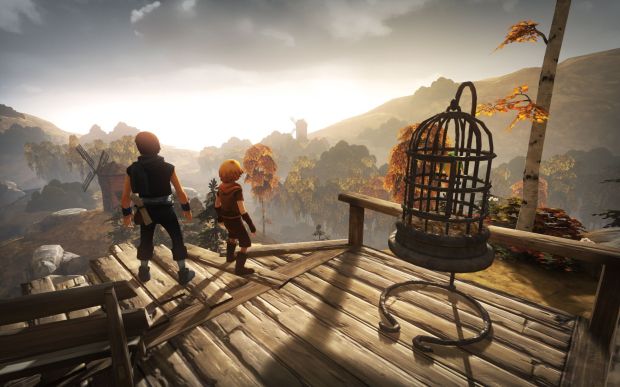
An excellent choice for number one… damn that button press.